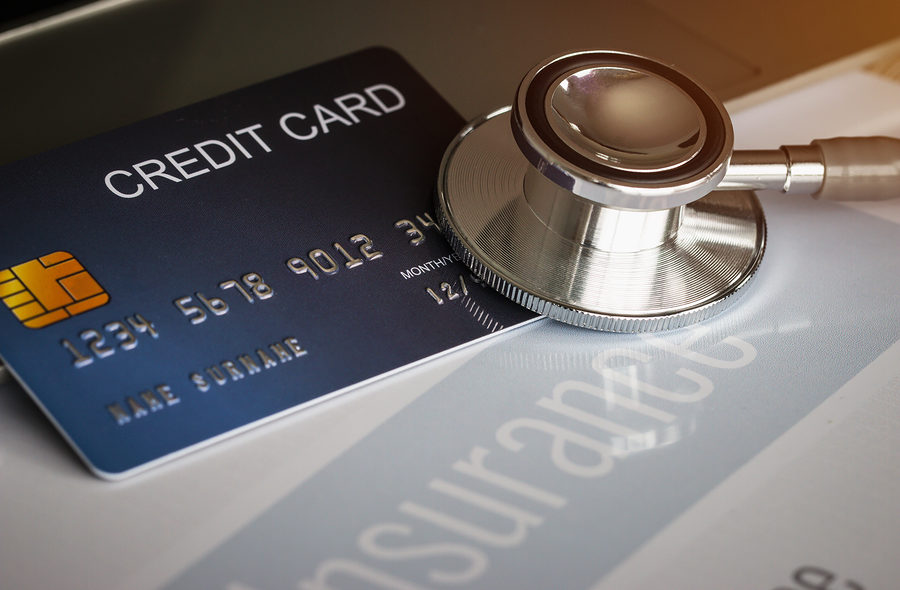With the cost of medical care increasing every year, many Americans are struggling to pay their medical bills. According to a recent study from NerdWallet, medical costs have increased 33 percent since 2009, while the national median household income has only increased 30 percent. To keep up with these costs, many consumers are forced to pay for their medical bills with credit cards. The problem is credit card interest rates can range anywhere from 10%-30% and come with additional fees and costs if timely payment is not made. Medical bills are expensive and paying them with your credit card will only add unnecessary interest fees to your bills.
Here are some tips that can help you avoid having to put medical bills on a credit card.
Interest-Free Repayment Plans.
Most medical providers are more than happy to work with clients on payment plans if the person is not able to pay his or her bill in full. After all, they would rather receive at least some payment in lieu of pursuing a collection action later. Many of these payment plans allow monthly payments with minimal fees or interest. Some providers will even go as far as asking how much is feasible for the person to pay monthly to eventually pay the amount in full. However, these plans do only last for a specified period. At the end of the interest-free promotional period, the consumer may be charged a retroactive interest rate, which is why it is important that the individual keep up on the payments and follow the plan accordingly.
Ask if you are eligible for a write-off.
Speak to the medical billing or collections department and ask about your options. Many hospitals and medical facilities can offer you a payment plan directly with them, which will often have much lower interest rates. Sometimes, dependent on your financial situation, you may even be eligible for a “write-off” where the bill is cleared, and you may not need to pay it at all.
Review Available Health Insurance Options.
It may be possible to review additional insurance alternatives to help avoid costly medical bills. It only takes one major medical crisis, no matter how healthy the person may be, to set him or her back thousands of dollars. Medical debt is a leading cause of bankruptcy filings. In fact, according to a study published by the American Journal of Public Health, 66.5 percent of people who filed for bankruptcy between 2013 and 2016, said medical debt and lack of health insurance coverage due to job loss were the main reasons behind their debts. If insurance coverage is available through employment, this method of obtaining coverage is often best, but it can also be advisable to try to obtain additional coverage in the event the unexpected occurs.
Those who have experienced illness or injury and found themselves overwhelmed with medical debt should contact an experienced Miami bankruptcy attorney. In bankruptcy, medical bills are considered general unsecured debts just like credit cards. This means that medical bills do not receive priority treatment and can easily be discharged in bankruptcy. Bankruptcy laws were created to help people resolve overwhelming debt and gain a fresh financial start. Bankruptcy attorney Timothy Kingcade knows how to help clients take full advantage of the bankruptcy laws to protect their assets and get successful results. Since 1996 Kingcade Garcia McMaken, P.A. has been helping people from all walks of life build a better tomorrow. Our attorneys’ help thousands of people every year take advantage of their rights under bankruptcy protection to restart, rebuild and recover. The day you hire our firm, we will contact your creditors to stop the harassment. You can also find useful consumer information on the Kingcade Garcia McMaken, P.A. website at www.miamibankruptcy.com.

